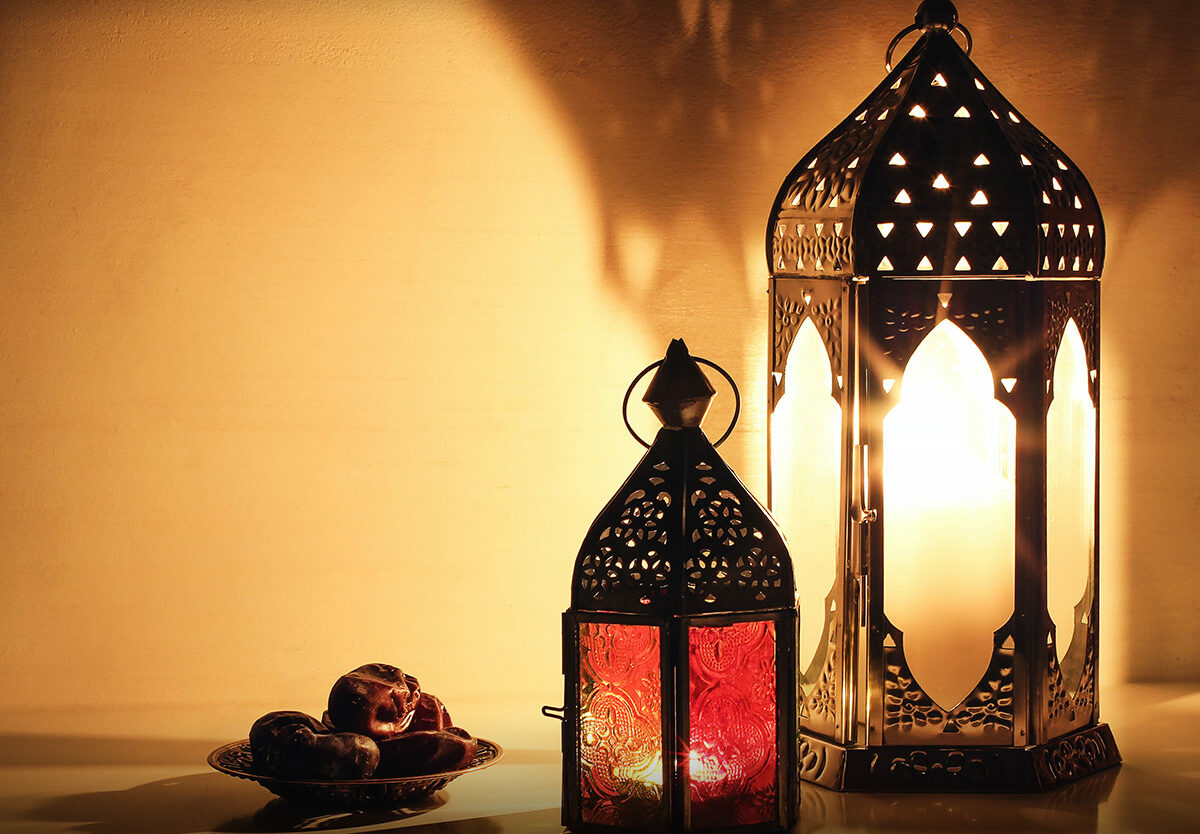- Accessibility
- My Sunderland
-
 Staff
Staff
-
 Students
Students
Save this page
Recently visited
You have yet to visit any pages
The following links below mark the 21 most recent pages you have visited in Sunderland.ac.uk.
Save this page
You have yet to visit any pages
Wellbeing > Shine a Light > Ramadan

For our Muslims students, Ramadan serves as a period of reflection, where they abstain from food and drink during daylight hours, focusing instead on prayer, purification, and acts of charity.
Ramadan 2025 will commence on Friday February 28th and will continue for 29/30 days until Sunday, 30th, March (subject to lunar observation). The festival of Eid al-Fitr 2024 will be celebrated on Monday 31st March (subject to lunar observation). In the Muslim calendar, a day begins on the sunset of the previous day, so observing Muslims will begin observing Ramadan on the sunset of Monday 31st March 2024. After the completion of Ramadan, the day of Eid will be celebrated.
Fasting is an integral part of religious life, discipline, and an experience of every faith. Ramadan is one of the five pillars of Islam. For Muslims, Ramadan is a very spiritual month; it is a month of special blessings, love and care for others. During this month, Muslims around the globe will be fasting and showing extra kindness to those who are less fortunate. As well as becoming more God-conscious, which results in suppressing the desires for food, drink and sexual activity, staying hungry will build empathy for those less fortunate who go days without food. This empathy will motivate the fasting person to take extra steps in looking after loved ones by supporting them in times of need.
We acknowledge the challenges our Muslim students may face in maintaining focus during this time. The combination of long days, potential high temperatures, and changes in learning and assessments may add extra pressure.
To support you, we have attached a document with guidelines on how we can support you during this period, with things such as prayer facilities and 4lecture advice, see here Ramadan Guidelines.
Below are our quick tips to help maintain your energy levels:
1. Planning: Organize your schedule well in advance to effectively manage coursework, revision, rest, exercise, prayer, and meals.
2. Rest: Ensure you get sufficient rest, despite fasting-induced lethargy.
3. Suhur Choices: Opt for slow-release energy foods like grains, oats, beans, and protein during pre-dawn meals. Hydration is crucial for health and cognitive performance.
4. Exercise: Limit physical activity, especially if you have afternoon assessments. Stay indoors or in shaded areas.
5. Evening Meals: Plan balanced meals that include carbohydrates, fats, proteins, vitamins, minerals, and water to sustain good health.
6. Combat Lethargy: Refresh your wudu (ritual ablution) to alleviate lethargy.
7. Mental Health: Be kind to yourself and prioritize mental health and wellbeing during Ramadan.
During office hours, you can reach Student Support Services Reception on 1st Floor, Edinburg building in person, by phone at 0191 515 2933 or via email at wellbeing@sunderland.ac.uk. Support Staffs are also available for students every night from 6:30 PM to 6:30 AM 7 days a week for free and confidential support. contact Out of Hours Support team on 0191 5152451.
1st Floor, Edinburgh Building,
City Campus, Chester Road,
Sunderland, SR1 3SD
Telephone: +44 (0)191 515 2933
